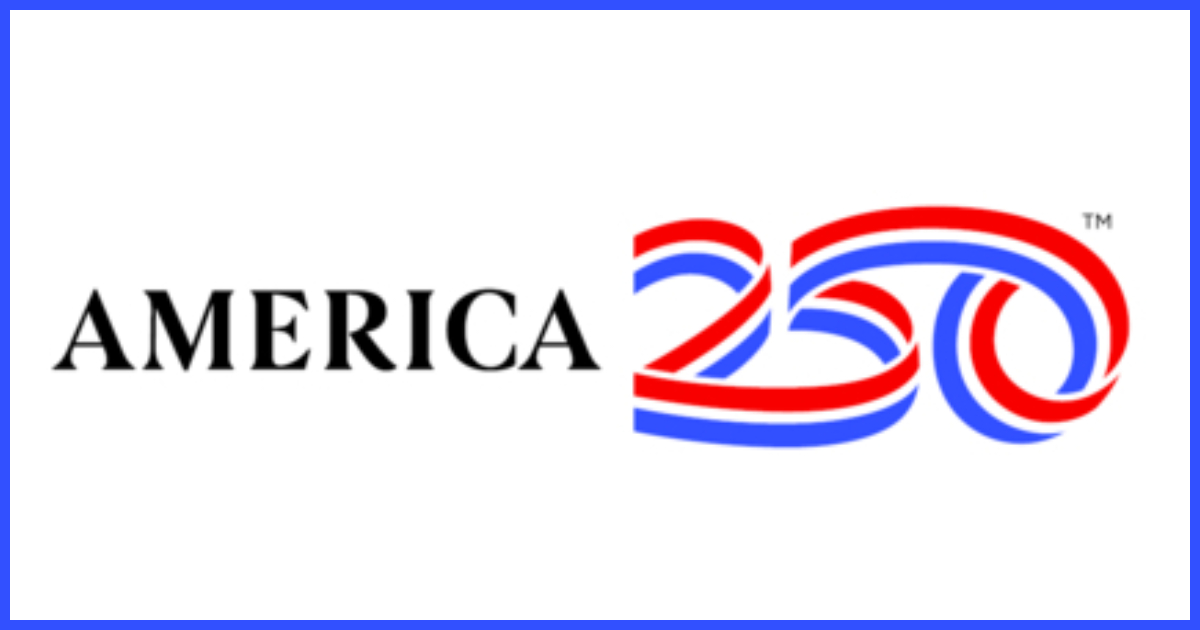Licensed Goods Mark America’s 250th Anniversary

By Mark Seavy
As the United States prepares to mark the 250th anniversary of its founding, the America250 brand is front and center.
An offshoot of the Congressionally-appointed U.S. Semiquincentennial Commission, the America250 group has so far signed 33 licensees via Global Icons with the bulk of product hitting retail in March 2026 and peaking with the July 4 celebration. America250 revenue is earmarked to support the program behind the 250th anniversary of the signing of the Declaration of Independence.
This strategy—including softlines that carry a 7-10% royalty as well as food and beverage products that carry a 3-5% royalty—stands in contrast to the country’s 200th anniversary in 1976 when brand licensing was, for the most part, absent, said Bill McClinton, President of Global Icons. And while minimum guarantees haven’t been disclosed, McClinton deemed them “reasonable” for a program that will in some cases (commemorative gold and silver coins, for example) extend into Q1 2027. The U.S. Patent and Trademark Office cleared the America250 marks recently, about a year after it first filed to register them.
How much sales of licensed America250 goods will raise isn’t clear. But if other commemorations are any measure, it could be substantial. In the U.K., for example, products sold to mark Queen Elizabeth’s Platinum Jubilee in 2022 ranged from $5 sandwiches to $1,299 Samsung refrigerators and were expected to generate $356 million, according to the Centre for Retail Research. And Canada marked its 150th anniversary in 2017 by investing $610 million in events around the country, including $169 million for Community and pan-Canada projects.
“Big Box retailers haven’t really started talking about this yet [to consumers] and they aren’t really ready and, because some of this product is domestically made, believe they can wait until the last second,” said Robert Caggiano, VP of Commercial Sales at Annin Flagmakers, which is fielding 10 SKUs of America250 product ranging in size from 4-by-6-inch to 5-by-8-feet. “But the sales will build over time.”
For its part, Annin has initially made its flags available to a base of approximately 1,100 independent retailers, about 77 of whom have so far taken in inventory. Logo Brands, in contrast, doesn’t expect to ship to its 1,500 retailers—including Walmart, Sam’s Club, Buc ee’s, and others—until late this year, said Kris Talley, VP of Sales at Logo Brands. Logo’s line features products ranging from lapel pins, stress balls, koozies ($4.99), coolers ($30-$50), and canopies ($299).
“Retailers won’t have to think regionally because these products can be sold across all stores” against Logo’s core sports-licensed goods for professional and collegiate leagues and teams that have more limited distribution, Talley said.
The products will also fill a void left as sales of merchandise tied to the upcoming men’s FIFA World Cup 26, which will end July 19, start to tail off, Talley said. “The retail buy for sports licensing is very complex and this [America250] is relatively simple and will carry through July and the end of year,” he said.
The buying cycle for America250 products has been delayed by tariffs on imported goods, something that caused retailers to postpone resetting their stores for the fall and holidays by two to three weeks until late September. Tariffs also forced suppliers to increase wholesale prices which, in turn, are boosting retail prices.
While Annin produces flags across three plants in Virgina and Ohio, the six-foot aluminum poles used with some of those products are made in China. The tariffs boosted Annin’s cost for the poles by about $8, increasing the retail price to $27 from $22, Caggiano said. And Logo Brands increased wholesale prices on imported goods by around 20%, said Talley in noting that retailers were told of the changes in March. Logo, for example, increased a typical $19.99 price by $5 to account for the added cost, he said.
“It is becoming more manageable and retail pricing will have settled in by 2026,” Talley said. “New norms will be happening at retail and that is not going to affect the consumers drastically.”
Another factor that hasn’t drastically affected America250 goods so far is counterfeiting, McClinton said. While some counterfeit flags were discovered at Licensing Expo, others were found and taken down on Amazon, he said. Indeed, a recent search on Amazon for America250 flags found only Annin’s products.
“For the most part, a lot of these retailers can be patriotic without licensing and in many cases, they are looking for more ways to sell products and I don’t think it is malicious,” McClinton said. “The barrier to entry [for licensed goods] isn’t too high and we aren’t asking for an arm and a leg to get a license. It’s reasonable.”




